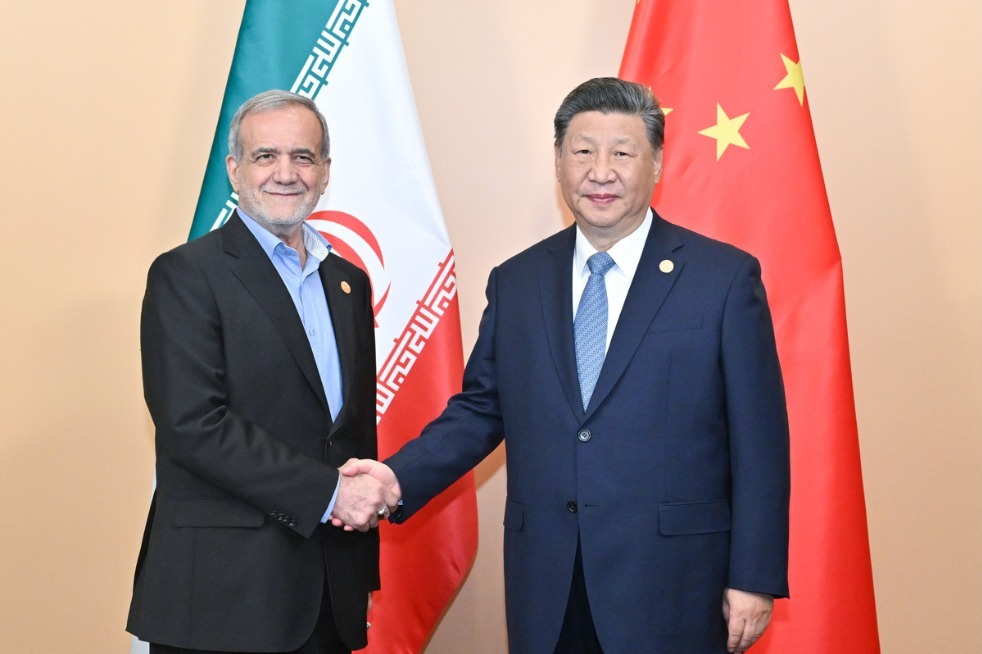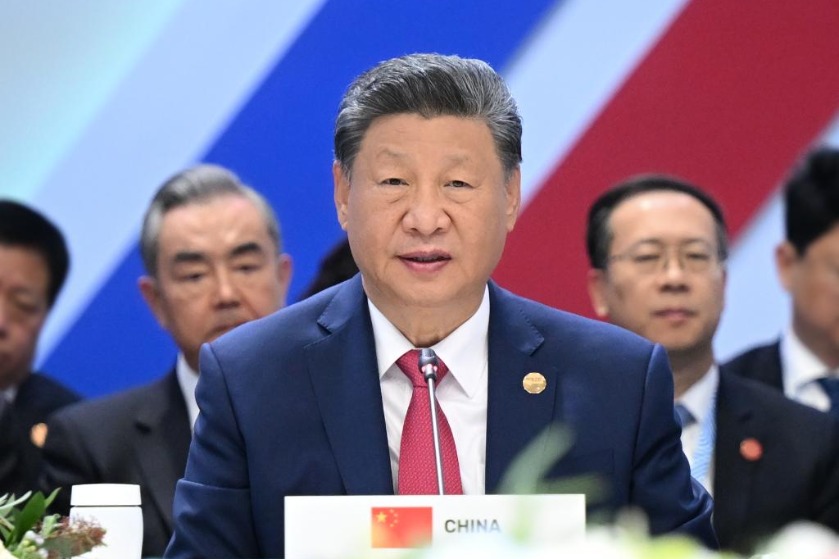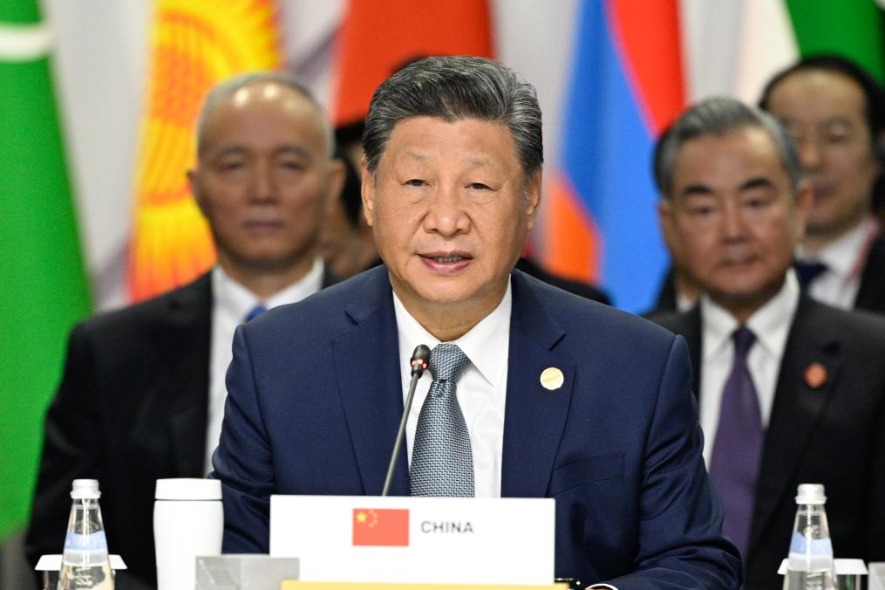Agriculturalist, teacher cultivates ties with villagers


Wang Gang is popular among residents of Pumpi, a remote village in the Democratic Republic of the Congo's Lualaba province, because he is good at planting and growing vegetables.
"Wang has not only taught me how to prepare farmland, fertilize soil, grow seedlings and move growing plants, but also given me knowledge about many types of Chinese vegetables and their nutritional composition as well as cooking methods," said Ilunga Germen Milongo.
Milongo, a homemaker, said she likes Chinese vegetables because they taste good, adding that she has obtained seeds from "the Chinese farm" that Wang heads, to grow plants in her little garden at home to feed her family.
"I want to thank Wang and the Chinese farm for teaching me planting skills and putting an end to the villagers' shortage of vegetables," she said.
Wang, 45, who grew up in China's eastern Shandong province, studied cultivation at Qingdao Agricultural University.
Since graduating in 2000, he has been in the farming business, with his work including the management of vegetable greenhouses for a South Korean agriculture company in Ulsan.
In late 2020, Wang heard that a State-owned company wanted to recruit an employee capable of growing vegetables in "infertile soil" in the DRC. He was curious about the job and applied for an interview with Norin Mining Lamikal, a subsidiary of China North Industries Corp.
"I was told about how difficult and expensive it was to buy vegetables at the work site of Norin Mining Lamikal in the village of Pumpi. They said that before me, some employees at the company had tried to grow vegetables at the work site, but all of their attempts failed.
"The information aroused my interest and curiosity. I thought it was a real challenge and I didn't believe that it was impossible to grow vegetables there," Wang recalled.
He was hired and sent to the Central African country in February 2021.
As soon as he arrived in Pumpi, he realized why he was needed.
Workers at Norin Mining Lamikal only had imported rice, cabbage and a handful of local vegetables for their dining table. Villagers ate corn and cassava as their staple food, and their vegetables were restricted mainly to cabbage and edible amaranth. "Many local families had difficulties in getting enough food," Wang said.
The main problem happened during the rainy season, when a large amount of organic matter in the soil was washed away by rainwater. At the same time, local people did not know how to fertilize their farmlands.
The first remedial measure Wang took was to organize a team of 10 local employees to search for alkaline organic soil in grasslands and forests surrounding Pumpi.
After finding fertile soil, the team transported it back to newly established farmland in the village.
Wang had reclaimed the land and fertilized it using the traditional Chinese method of putting leaves and wood chips on the bottom, placing grass and half-decomposed animal manure in the middle, and laying earth and mature compost on the surface.
He also instructed local employees on how to spread limestone powder and plant ash to fertilize the earth and improve its suitability for new kinds of vegetables.
Since then, Wang has worked with local employees to gradually expand the farmland. It now covers about 1.33 hectares and has successfully grown a wide variety of vegetables, including tomato, cucumber, eggplant, chili pepper, lettuce, kidney beans and bitter gourd.
After achieving his goal of supplying fresh vegetables for Norin Mining Lamikal employees, the agriculturalist decided to share his knowledge and skills with the villagers to help them ensure they have enough food.
Since the end of 2022, a training program has been implemented in Pumpi, offering free lessons to residents. Wang's company provides the seeds, fertilizer and agricultural equipment, and program participants are allowed to consume or sell what they produce.
"The villagers are enthusiastic about taking part in the training because we teach them everything needed for growing vegetables," he said, noting that more than 1,000 people have graduated from the training program.
"I will stay here in the near future because I want to help more local people. We have begun to expand the training base and will introduce more types of vegetables," he added.
Katanga Musola Gustave, a villager with a large family who is a member of the training team, said Wang is a very good teacher and respected by the locals.
He said Wang has taught them basic knowledge and skills, how to choose suitable soils and blend them, which sowing methods are fit for specific vegetables, and ways to prevent and deal with plant diseases and insect pests.
"Sometimes, when I find good soil, I take pictures and send them to Wang to ask for his suggestions," he said, adding that Wang was very patient and responsible.

































